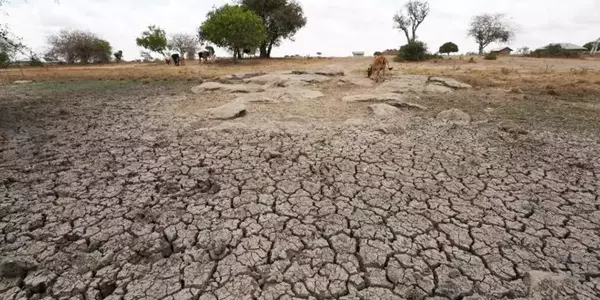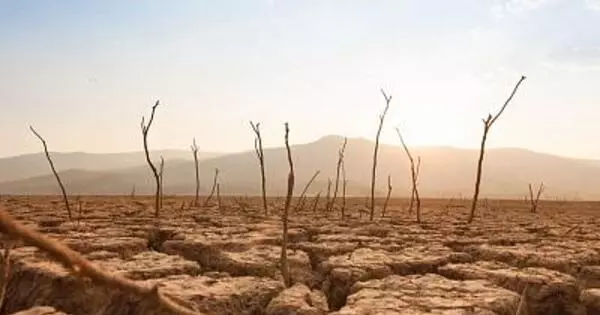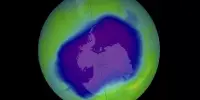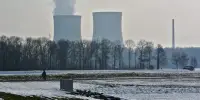We now have the clearest picture yet of how different the world is today as a result of climate change caused by humans. The United Nations Intergovernmental Panel on Climate Change today released its most comprehensive report on the physical science of climate change to date (IPCC).
“Climate change is a current issue. Nobody is safe, and the situation is deteriorating rapidly,” Inger Andersen, executive director of the United Nations Environment Programme, said today at a press conference. “Climate change must be treated as an immediate threat.”
Extreme events, from floods to heatwaves and droughts, have gotten worse, according to the report. And scientists are even more convinced than before that human-caused greenhouse gas emissions, such as carbon dioxide and methane (which constitute the majority of “natural gas”), are to blame.
“We’ve known for decades that the world is warming, but this report tells us that recent climate changes are widespread, rapid, intensifying, and unprecedented in thousands of years,” said Ko Barrett, vice chair of the IPCC, at a press conference on August 8th. “It is undeniable that human activities are contributing to climate change.”
The IPCC is considered a leading authority on climate science, and its new report has more than 230 authors from 66 countries around the world. Today’s findings are an update to a similar report in 2013, and they incorporate the body of research that’s been published in scientific journals since then.
Extreme weather is occurring with increasing frequency across the entire planet. We can now attribute these changes primarily to human activity.
Paola Andrea Arias Gómez
Since 2013, researchers have gotten a lot better at predicting how much climate change affects individual weather events, which makes a big difference this time. In July, for example, a record-breaking heatwave in the United States’ Pacific Northwest and Southwest Canada buckled roads and killed hundreds of people. An international team of researchers determined in less than two weeks that the extreme heat would have been “virtually impossible” without climate change.
Nearly every region of the world outside of polar regions have seen an uptick in extreme heat events since the 1950s, according to the new IPCC report. Across the globe, extreme heatwaves now occur five times more frequently than they did between 1850 and 1900 (a baseline often referred to as the preindustrial period), according to the report. Heat also exacerbates drought in some regions of the world. Droughts that previously only occurred once every decade are now 70 percent more frequent than they were in the preindustrial era.
However, the consequences of the climate crisis are diverse and far-reaching. Severe storms and flooding are also becoming more common. What were once once-in-a-decade downpours are now happening 30% more frequently. When it comes to tropical cyclones, there is a higher proportion of major storms (category 3 or higher), implying that hurricanes and typhoons have become more powerful.

“Extreme weather is occurring with increasing frequency across the entire planet,” said Paola Andrea Arias Gómez, one of the IPCC report’s authors, during a press conference. “We can now attribute these changes primarily to human activity.”
More bad news: without drastic action to curb the use of fossil fuels, things will get worse. Leading climate experts have set a target of limiting global warming to no more than 1.5 degrees Celsius above preindustrial levels, in order to avoid some of the worst-case scenarios that climate change could create. We’ve already reached 1.1 degrees Celsius of warming, and the report says we could reach or even surpass that dreaded 1.5-degree threshold within the next couple of decades.
What does this imply for severe weather? Prepare for more “unprecedented” events — in other words, things that have never happened before. The authors of the report outline five scenarios in which this is expected to occur in the future: Extreme events will become even more so. They will become more frequent. There is a greater likelihood of extreme events occurring consecutively or of different types of disasters occurring concurrently. They’ll happen in unexpected places. And the occurrence of these disasters will be unpredictable.
Other issues detailed in the new report include melting ice, rising sea levels, and frightening tipping points that could accelerate the pace of the climate crisis. The IPCC is also expected to release two more key reports early next year: one that details how all of these changes to the planet will affect human life as we know it, and another that outlines potential solutions. Notably, today’s report is the only one that will be ready in time for the upcoming United Nations climate conference in November, when world leaders are expected to discuss increasing commitments to reduce global warming pollution.
“This report is a wake-up call,” said Valérie Masson-Delmotte, co-chair of the IPCC working group in charge of the report, in a press release. “We now have a much clearer picture of the past, present, and future climate, which is critical for understanding where we’re going, what we can do, and how we can prepare.”
















